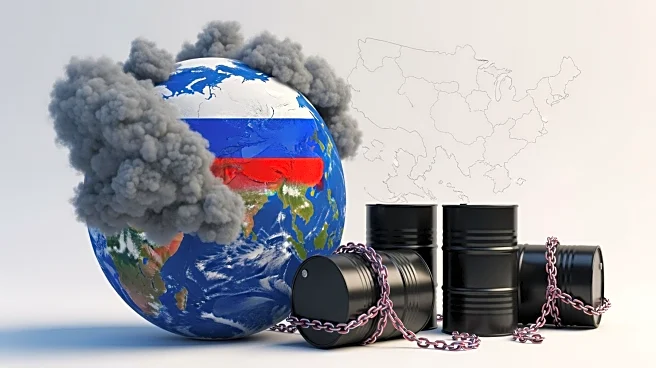What's Happening?
President Trump has announced sanctions targeting Russia's largest oil companies, Rosneft and Lukoil, in an effort to pressure President Vladimir Putin to agree to a ceasefire following Russia's invasion
of Ukraine. These sanctions are aimed at undermining Russia's economy by targeting its energy sector, which is crucial for funding the Kremlin's war efforts. The U.S. Treasury's Office of Foreign Assets Control (OFAC) stated that the sanctions are due to Russia's lack of commitment to a peace process. The measures also threaten foreign financial institutions that conduct transactions with Russia's military-industrial base with potential sanctions.
Why It's Important?
The sanctions represent a significant shift in U.S. policy towards Russia, marking the first such measures since President Trump's return to the White House. By targeting Russia's oil revenue, the U.S. aims to weaken the country's economic foundation and its ability to sustain military operations in Ukraine. This move could have broader implications for global energy markets and international relations, as it increases pressure on Russia while potentially affecting global oil prices. The sanctions also signal a more aggressive stance by the U.S. in supporting Ukraine and countering Russian aggression.
What's Next?
The sanctions coincide with new measures by the EU targeting Moscow's oil and gas revenues, suggesting a coordinated effort to maintain economic pressure on Russia. The U.S. Treasury has indicated readiness to take further action if necessary, which could include additional sanctions or support for Ukraine's military capabilities. The international community will be closely watching Russia's response and any potential escalation in the conflict.









